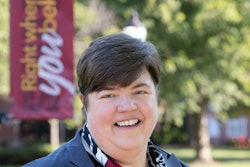After more than half a century, the music of Motown not only thrives, it transcends generations. The iconic sound of Motown has led a handful of scholars to write, teach, lecture and share the music, history and business of Motown on their campuses.
In its golden age, from 1959 to 1972, the sound Berry Gordy pioneered at Motown Records in Detroit was the soundtrack for Black America. The Motown sound spawned a legion of talented young performers, many from the Motor City. The Four Tops, Stevie Wonder, the Jackson 5 and Martha and the Vandellas were among the early stars. There were chart toppers like Barret Strong’s “Money (That’s What I Want),” the Marvelettes’ “Please Mr. Postman,” the Vandellas’ “Dancing in the Street” and the Temptations’ “Just My Imagination.” At its height, the music of Black Detroit could be heard emanating from radios and phonographs across the country.
Sometimes buoyant, sometimes urgent, often gospel-tinged but always cool and infectious, the lyrics and rhythms of Motown opened a window into the Black experience of the segregated 1960s. Motown became a household word and changed a generation.
Professor Charles Sykes, who directs the African American Arts Institute at Indiana University, can attest to Motown’s impact and multigenerational appeal. Since 1995, Sykes, who calls himself “Dr. Motown,” has taught a course that he developed as the first for-credit college course on the Motown Record Corp. The class is now one of the most popular course offerings on the campus. Among the texts Sykes uses are autographed copies of Gordy’s autobiography, To Be Loved: The Music, the Magic, the Memories of Motown.
Today, a small group of dedicated scholars are considered among the nation’s leading authorities on Motown. A cultural anthropologist, a musicologist, a historian and a communications/ethnic studies expert share with Diverse some of the challenges and curiosities that come with being keepers of the Motown legacy.
DR. SHARNINE S. HERBERT – Associate Professor; Department of Human Communication Studies/Director; Ethnic Studies; Shippensburg University
Every other semester, Sharnine Herbert teaches a course titled “African-American Music from 1968 to 1972.” Herbert discusses Motown artists and the civil rights movement and includes readings from The Autobiography of Malcolm X.














